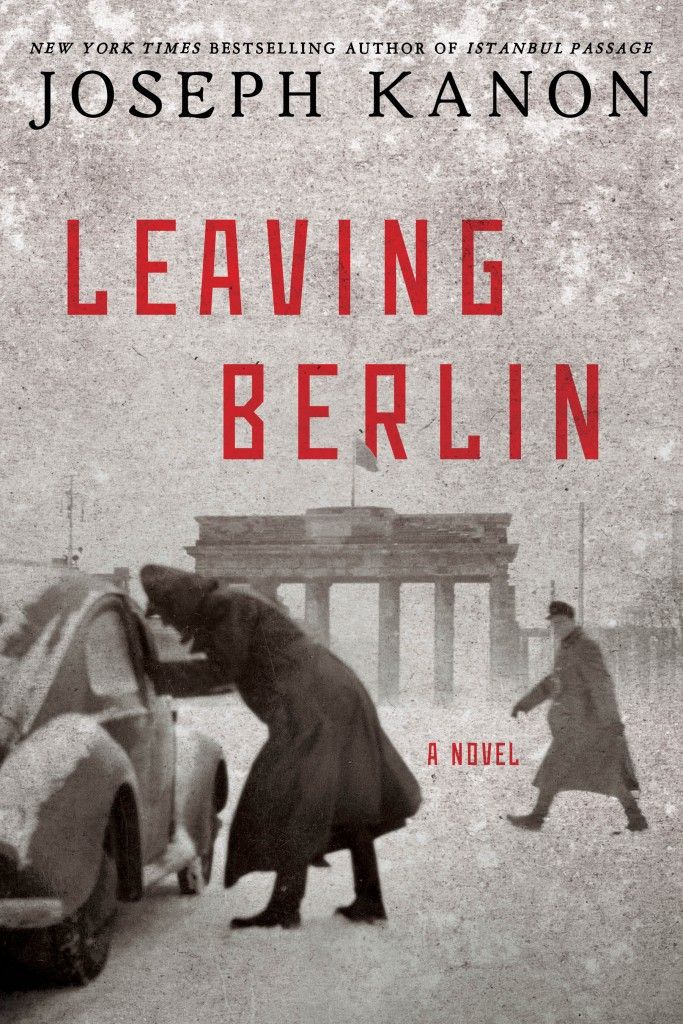From the bestselling author of Istanbul Passage—called a “fast-moving thinking man’s thriller” by The Wall Street Journal—comes a sweeping, atmospheric novel of postwar East Berlin, a city caught between political idealism and the harsh realities of Soviet occupation.
Berlin 1948. Almost four years after the war’s end, the city is still in ruins, a physical wasteland and a political symbol about to rupture. In the West, a defiant, blockaded city is barely surviving on airlifted supplies; in the East, the heady early days of political reconstruction are being undermined by the murky compromises of the Cold War. Espionage, like the black market, is a fact of life. Even culture has become a battleground, with German intellectuals being lured back from exile to add credibility to the competing sectors.
Alex Meier, a young Jewish writer, fled the Nazis for America before the war. But the politics of his youth have now put him in the crosshairs of the McCarthy witch-hunts. Faced with deportation and the loss of his family, he makes a desperate bargain with the fledgling CIA: he will earn his way back to America by acting as their agent in his native Berlin. But almost from the start things go fatally wrong. A kidnapping misfires, an East German agent is killed, and Alex finds himself a wanted man. Worse, he discovers his real assignment—to spy on the woman he left behind, the only woman he has ever loved. Changing sides in Berlin is as easy as crossing a sector border. But where do we draw the lines of our moral boundaries? Betrayal? Survival? Murder?
Filled with intrigue, and the moral ambiguity of conflicted loyalties, Joseph Kanon’s new novel is a compelling thriller and a love story that brings a shadowy period of history vividly to life.
“A Supremely tense, intricately plotted thriller…Kanon who writes his novels at the NY Public Library, conjures from there a Berlin of authentic menace and such hairpin turns that Leaving Berlin evokes comparisons to John LeCarre and Alan Furst. Such good company.” – NY Daily News
“Kanon has a very distinctive style, employing staccato prose and elliptical dialogue that conveys information as quickly as possible so that the story hares along. With a less careful writer this approach would lead to unintended ambiguities, but in the whole book I don’t think there were more than half a dozen times when I had to reread a sentence – excluding those I reread in admiration when Kanon allows himself an occasional burst of lyricism in praise of this wonderful city that sank so low. The novel is hugely exciting, and just as heart-breaking.” – The Telegraph
“A pleasure from start to finish, blending literary finesse with action, this atmospheric historical thriller will appeal not only to Kanon’s many fans but to those who enjoy Alan Furst, Philip Kerr, and other masters of wartime and postwar espionage fiction.” – Library Journal
“Kanon has a very distinctive style, employing staccato prose and elliptical dialogue that conveys information as quickly as possible so that the story hares along. With a less careful writer this approach would lead to unintended ambiguities, but in the whole book I don’t think there were more than half a dozen times when I had to reread a sentence – excluding those I reread in admiration when Kanon allows himself an occasional burst of lyricism in praise of this wonderful city that sank so low. The novel is hugely exciting, and just as heart-breaking.” – Library Journal
“A pleasure from start to finish, blending literary finesse with action, this atmospheric historical thriller will appeal not only to Kanon’s many fans but to those who enjoy Alan Furst, Philip Kerr, and other masters of wartime and postwar espionage fiction.”
“Joseph Kanon’s thought-provoking, pulse-pounding historical espionage thriller [is] stuffed with incident and surprise. . . . Mr. Kanon, author now of seven top-notch novels of period political intrigue, conveys the bleak, oppressive, and creepy atmosphere of occupied Berlin in a detailed, impressive manner. . . . Leaving Berlin is a mix of tense action sequences, sepia-tinged reminiscence, convincing discourse and Berliner wit.”- Tom Nolan / Wall Street Journal
“Galloping and compulsive…Admirably atmospheric, the picture of the ravaged Berlin excellently done…I can’t imagine anyone putting it down.” — Allan Massie on LEAVING BERLIN
“An unforgettable picture of a city wrecked by defeat and riddled with betrayal. Brilliant.” – Kate Saunders, The Times (London) on LEAVING BERLIN.
“If you are looking for a combination of Le Carre and Graham Greene, LEAVING BErLIN will do the trick perfectly…One of the most exciting books I have read for years. – Alexander McCall Smith, Mail on Sunday (London), named Book of the Year.
“Kanon brings the hardships and moral decay of postwar Berlin to life in glorious detail, ratcheting up the suspense as Meier tries to escape the net closing in on all sides. Absorbing.” – Sunday Express (London)
“wonderfully atmospheric” – The Times of London


